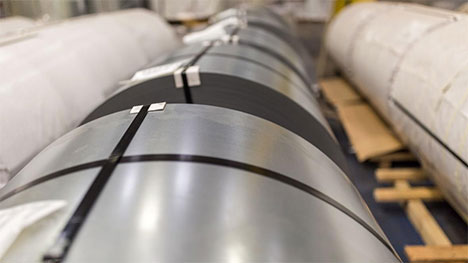Metals and Steel History: From India and Europe to Modern America
Iron, the Herald of Things to Come
Metals and steel history spans from India and Europe to modern America. For the ancients, much of life was a mystery. At first, humans only utilized the easy-to-find metals, such as gold, silver, and copper, that didn’t require human intervention to become a final product. Other available metals needed treatment before they could be used. For example, smelting was needed to extract iron from iron ore, which is a chemical compound formed from iron and oxygen. Altogether, prehistory was an age where humanity was at the mercy of the colossal powers that govern the universe.
Even still, humans progressed.
A philosopher named Aristotle perceived the essence of virtue. He theorized that virtue lies at the balance point between deficiency and excess.
“The man who shuns and fears everything and stands up to nothing becomes a coward; the man who is afraid of nothing at all but marches up to every danger becomes foolhardy.” — Aristotle
Aristotle would have recognized steel as a virtuous metal. Steel contains anywhere between 0.05% to 0.25% carbon content, the perfect balance between deficiency and excess. Too little carbon and the metal becomes weaker and soft. Too much carbon and the metal will become brittle.
But getting metal to show its virtue as steel would take technological processes that defied humans for many years. While they used bronze, many civilizations neglected iron because iron technology at the time could only produce a “low-density, sponge-like material.” The main obstacles to higher quality iron were designing furnaces with high enough temperatures and the lack of basic knowledge of elements. Eventually, however, the abundance of iron ore (more abundant than the tin needed to make bronze) made it the metal of choice. This discovery began the Iron Age. With the advent of the Iron Age, steel, an alloy of iron, now found itself in ideal circumstances to surface as the supreme metal. However, steel would have to wait until after the industrial revolution to be mass produced.
To make steel, all that’s needed is a bit of charcoal, iron, and a furnace. However, the smelting can be tricky. If “your gangue is ‘wrong’, your bellows are leaky or especially efficient, your charcoal is too reactive, […] all you produce is slag, useless cast iron, or small useless blooms.” So much mystery shrouded steelmaking, that ritual and religion often got mixed up with science. One superstitious smith in the Middle Ages insisted on “quenching the steel in ‘the urine of a redheaded boy‘.”
Humanity would eventually conquer the process over centuries. Now, we will try to follow the oftentimes obscure history of steel technology.
An Abbreviated History of Steel
Egyptians, Hittites, and the Earliest Known Steel-work
The mighty Egyptians don’t need an introduction. They are the builders of pyramids and the Sphinx, of making papyrus and hieroglyphics, appear prominently in much of the Old Testament, and are well represented in museums across the planet. However, in steel lore, Egyptian […]



